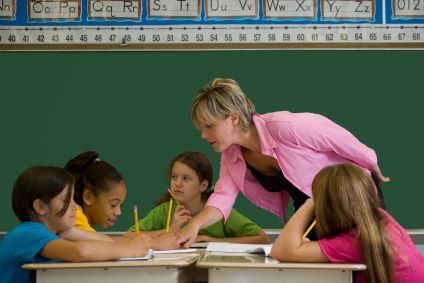Even infants, toddlers enjoy story time
 Research shows that whether a child has been read aloud to on a regular basis is the single biggest predictor of a child’s success in learning to read, says University of Alabama at Birmingham (UAB) Associate Professor of education Kathleen Martin, Ph.D.
Research shows that whether a child has been read aloud to on a regular basis is the single biggest predictor of a child’s success in learning to read, says University of Alabama at Birmingham (UAB) Associate Professor of education Kathleen Martin, Ph.D.
Martin and UAB Assistant Professor Kay Emfinger, Ph.D., are authors of the new book “Sharing Books Together: Promoting Emergent Literacy Through Reading Aloud and Home-School Partnerships.” [continue reading…]
 To encourage and help teachers become more involved and enthusiastic about “inclusive teaching”, the Economic and Social Research Council (ESRC) recently funded an action research based project. Action research can be explained as making changes and studying the impact of those changes in order to bring about an environment where students feel included in their learning process.
To encourage and help teachers become more involved and enthusiastic about “inclusive teaching”, the Economic and Social Research Council (ESRC) recently funded an action research based project. Action research can be explained as making changes and studying the impact of those changes in order to bring about an environment where students feel included in their learning process.
According to the project’s Co-director Dr Susan Davies, of Trinity College, Carmarthen, “Action research is an opportunity for teachers to look at their practice, reflect on it, and improve on it.” [continue reading…]

New transatlantic research has discovered that sad children do better than happy children in particular educational tasks.
Psychologists at the Universities of Plymouth and Virginia have conducted experimental research that contrasts with the belief that happy children are the best learners. The findings show that where attention to detail is required, happy children may be at a disadvantage. [continue reading…]
New research from the University of New Hampshire shows that students do much better in school when their parents are actively involved in their education.
Researchers Karen Smith Conway, professor of economics at the University of New Hampshire, and her colleague Andrew Houtenville, senior research associate at New Editions Consulting, found that parental involvement has a strong, positive effect on student achievement. [continue reading…]
 Research shows that whether a child has been read aloud to on a regular basis is the single biggest predictor of a child’s success in learning to read, says University of Alabama at Birmingham (UAB) Associate Professor of education Kathleen Martin, Ph.D.
Research shows that whether a child has been read aloud to on a regular basis is the single biggest predictor of a child’s success in learning to read, says University of Alabama at Birmingham (UAB) Associate Professor of education Kathleen Martin, Ph.D.

